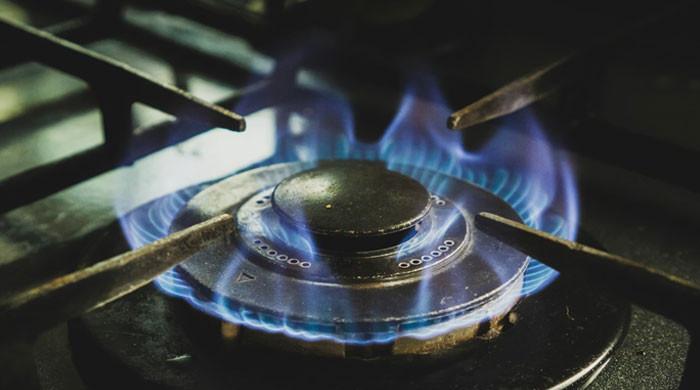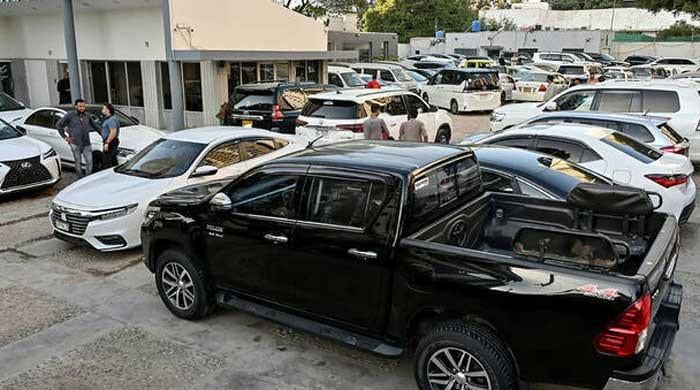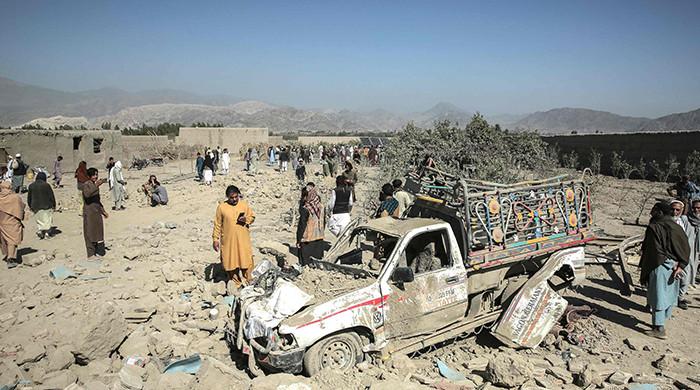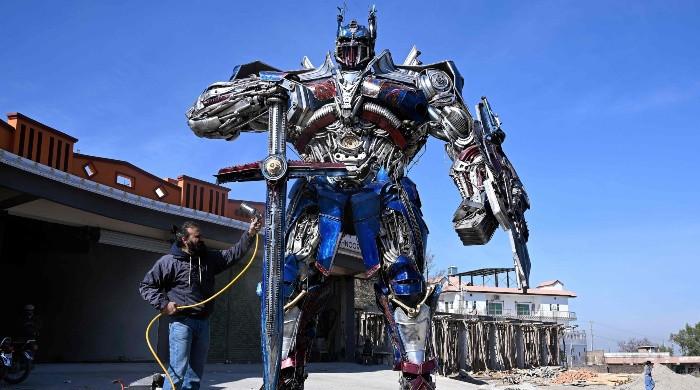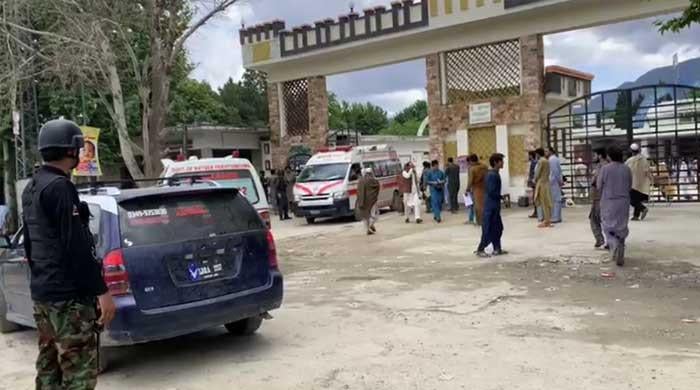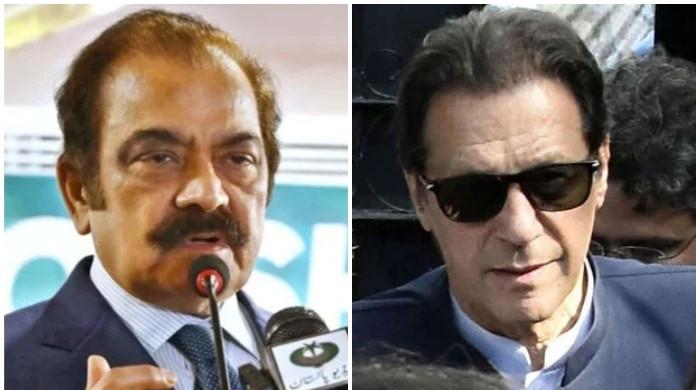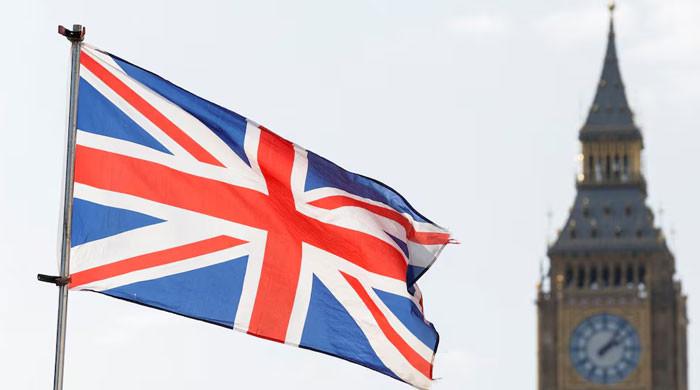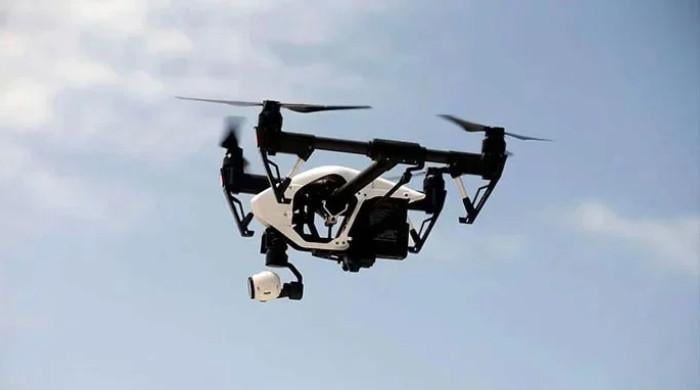Potential ban on TLP: Asif urges 'hard state' approach to tackle extremist religious groups
Punjab information minister expects ban on religio-political party to be enforced within a day or two
October 21, 2025
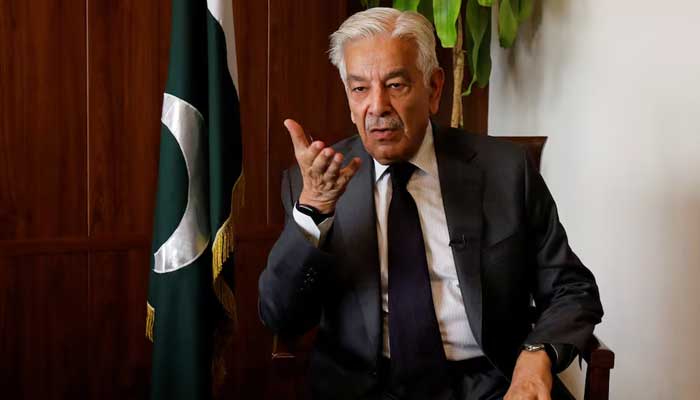
- Extremist religious groups unacceptable: Khawaja Asif.
- Defence czar declines to comment on possible TLP ban.
- Vows state will operate under law and Constitution.
ISLAMABAD: Pointing towards violent protests of the Tehreek-e-Labbaik Pakistan (TLP), Defence Minister Khawaja Asif said on Tuesday that the country should act as a "hard state" to curb extremism, as religious extremist groups formed in the name of religion are unacceptable in any state.
His statement came days after the Punjab government sent a summary to the Centre seeking a ban on TLP after violent demonstrations in the province left many dead and scores injured.
Although the group was not named in official statements, the provincial government had vowed that individuals involved in spreading violence, inciting hatred, or causing public harm would be arrested and prosecuted under anti-terrorism laws.
Speaking to Geo News, Asif declined to comment on whether a ban was being imposed on the TLP.
"We have to become a hard state," said Asif, adding that such religious extremist groups, which resort to violence and cause damage to property, cannot be tolerated in Pakistan.
He said that it was too late as such groups had been formed and encouraged for decades, adding: "Everyone knows who created them and for what purpose."
Asif asserted that from now on, the state would function strictly in accordance with the law, rules, and the Constitution.
The defence czar said that he was unaware of Jamiat Ulema-e-Islam-Fazl (JUI-F) chief Maulana Fazlur Rehman's statement about his workers being ready to march towards Islamabad.
He added that Fazl was "highly respectable" to him and refrained from commenting further.
The JUI-F chief — once a close ally of the Pakistan Muslim League-Nawaz (PML-N) and the Pakistan Peoples Party (PPP) — later turned into a vocal critic of the incumbent government.
The Nawaz Sharif and the Bilawal Bhutto-led parties had joined hands to form coalition governments twice after the ouster of former prime minister Imran Khan through a no-confidence motion in 2022.
Following the 2024 general elections, Fazl rejected the formation of the coalition government, alleging widespread electoral rigging and irregularities.
TLP to be banned soon: Punjab minister
Punjab Information Minister Azma Bokhari said that the provincial cabinet's decision had been sent to the federal government, expressing hope that a ban on the TLP would be enforced within a day or two.
A special prosecution cell has been established to pursue the Muridke cases, Bokhari told a press conference, and also hinted at strict action against the TLP's financiers.
She added that three passers-by were martyred and 48 citizens were injured in the incident. 110 police personnel were also wounded — 18 of them by gunfire — while eight police vans were torched and seized along with weapons, she added.
She added that complete footage of all attacks had been recorded, including videos of police being assaulted in Shahdara, and that an organised cell had been set up to threaten politicians and journalists.
Bokhari said that the state and the government were implementing all decisions taken regarding the TLP, noting that the group falsely portrayed the unrest as a cause for Palestine and Gaza. She added that the TLP's propaganda cell was spreading lies online.
The minister stated: "38 financiers who funded terrorist organisations had been identified, and all their accounts frozen."
She warned that anyone found aiding the TLP financially would face terrorism charges.
She said that the government's action was not against any sect, group, or party but against extremist ideology. Bokhari also revealed that several mosques of the TLP had been taken into government control and hundreds of seminaries geo-tagged.
She said 33 terrorism cases had been registered and that all nominated suspects would be arrested.
"Saad Rizvi and his brother are being traced and will soon be apprehended," she said, adding that those sheltering them were also under investigation.
Bokhari revealed that 95 bank accounts, along with both legal and illegal properties in Saad's name, had been sealed.
Bokhari stressed that the government was not thinking about vote banks or elections but was ensuring judicial action against the extremist group.




